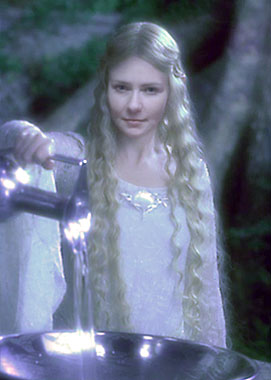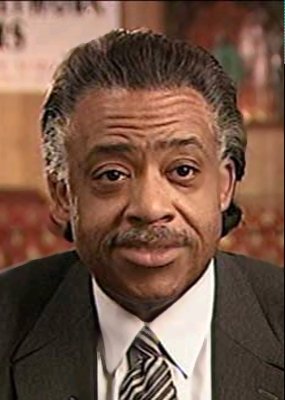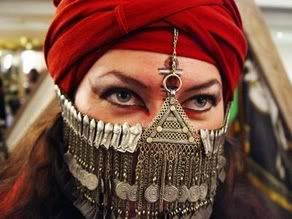








































































Posted on 09/19/2009 2:10:47 PM PDT by NYer
Tolkien would have been of absolutely no help in breaking codes of the Enigma machine. That goes for Lorenz as well. As for any other ciphers, they would have been of a lower priority. Even then the possible permutations would have been in the millions. I seems unlikely that he could have been of help in cracking these other ciphers.
Tolkien made the right decision to remain at Oxford. He was a scholar of Anglo-Saxon and Germanic languages, not a cryptographer, not a mathematician, not a scientist. He also turned out be a great story teller. I would say he created the greatest work of the imagination written the 20th century.
A man can't be brilliant in all fields of learning. Tolkien was most brilliant when it came to writing mythology. His works will be read as long as there are people on earth who know how to read.
Training as a technician/cryptographer is not training as a spy. Sensationalized headline trying to pump up interest in the story, and the story doesn’t really need it.
As for any other ciphers, they would have been of a lower priority.That's far too broad a generalization. A great deal of good intelligence was extracted from the simpler codes.
Even then the possible permutations would have been in the millions. I seems unlikely that he could have been of help in cracking these other ciphersThat's a remark that could be made only by someone who has no actual experience in cracking ciphers.
A man can't be brilliant in all fields of learning. Tolkien was most brilliant when it came to writing mythology.
Tolkien was a philologist - a student of languages. And he was brilliant in his field. He was fluent in English, French, German, Greek, Welsh, Finnish, Spanish, and Italian, and had a working knowledge of Serbian, Russian, Swedish, Danish, and Dutch.
Remember, the intercepted messages weren't convenently translated into English before encryption, and there were very few people in England who were familiar with as many of the languages involved.
I won't say that Tolkien had the trick of mind that made for a successful cryptanalyst in pre-machine and computer ciphers. His lifelong penchant for playing around with languages suggests that he did, but there's no way of knowing for sure.
But his lack of mathematical skills only precluded him from certain tasks in developing the breaks for machine ciphers. There were thousands working at Bletchley, and only a handful involved the mathematical analysis that resulted in the breaks in Enigma and Lorenz.
Tolkien clearly had skills that could have been put to use.
Not to mention the ancient tongues, primitive English and many other dialects. He was a very impressive man.









































































Those are the skills of a translator, not a code-breaker. That is a completely different kettle of fish. Language translation has nothing to do with cryptology.
That's a remark that could be made only by someone who has no actual experience in cracking ciphers.
Then please name one of these other ciphers, and then we can do the research and see how many possible permutations there were. The code book I have said there would have been 159,000,000,000,000,000,000 possible permutations for the cryptanalyst to check in order to crack a message encrypted with the Enigama machine. That is, before Turing set set mind to work and found a simpler way.
Language translation has nothing to do with cryptology.Which was why, of course, that the best cryptanalysts prior to the development of machine ciphers were linguists, not mathematicians.
The code book I have said there would have been 159,000,000,000,000,000,000 possible permutations for the cryptanalyst to check in order to crack a message encrypted with the Enigama machine.
The security of a cipher has more to do with how much statistical information about the plaintext leaks through to the ciphertext than it does about how many possible keys there are. A simple substitution cipher on a 26-letter alphabet has 403,291,461,126,605,635,584,000,000 possible keys, but it's trivial to crack.
Have you read any of the personal accounts by the folks at Bletchley? Any of William Friedman's declassified histories of cryptography? Or have you just read the popularizations?
For that matter, have you ever cracked a cipher other than a newspaper cryptoquip? Have you ever, for example, cracked a Playfair?
I don't want to sound arrogant, because it's certainly true that there's a lot I don't know. But I do know that what you are expounding is incorrect.
So Tolkien was “Lord of the Decoder Rings”?
So Tolkien was “Lord of the Decoder Ring”?
The Germans were not using substitution ciphers. A transposition cipher is a different matter entirely. To crack a substitution cipher, you use a statistical method. Start looking for the most frequent letter. But a transposition cipher adds a tremendous amount of complexity to the encryption algorithm.
The German government was using the Enigma machine by the 1920s to encrypt critical communications. They had the best encryption in the world going into WWII. It took a mathematician like Turning to crack the system, thanks to some careless encoders on the German side.
We disagree about how useful Tolkien would have been. He would have been useless for any transposition cipher. He made the correct decision to stay at Oxford.
The man who did more to break the Enigma than any other (including Alan Turing) was Alfred Dillwyn 'Dilly' Knox - was a classics scholar, not a mathematician.
As for your remarks concerning transposition vs. substitution - particularly your assumption that breaking them takes substantially different skills - again, these only show your lack of experience. Have you ever tried to break even a simple columnar transposition?
For a simple cipher like a substitution cipher, a cryptanalyst uses a statistical analysis to look for linguistic patterns: most frequently used letter in the alphabet, most frequently used letter to begin a word, most frequently doubled vowels, etc. Linguist analysis does not work on more sophisticated cryptographic methods.
As for your remarks concerning transposition vs. substitution - particularly your assumption that breaking them takes substantially different skills - again, these only show your lack of experience. Have you ever tried to break even a simple columnar transposition?
The Germans were not using transposition ciphers of a single column because they know they were not teen-age boys playing secret agent in their parents' back yard. Nobody in the German government would have been so naive to use a transposition cipher of one column. They would have used several transpositions along with substitutions in the same encryption. That sort of combination does not lend itself to linguistic analysis.
As for modern linguistics, it has become a science, and like all sciences, uses mathematical models, in this case to describe the grammar of languages. Tolkien was from the old school of philology. He would have been of no use to the British in cracking ciphertext. He didn't have the mathematics background that some of his linguist colleagues had. I think we can applaud his good sense to stay in Oxford. His skills lay in a different direction.
ping
Tolkien obviously read the Icelandic historian/fabalist Snorri Sturlasson.
Snorri Sturalasson listed the names of the great Dwarves of Norse legend, and Tolkien copied them verbatim, even the order “Biffer, Boffer, and Bomber” etc.
Not that the guy was not A) original and B) a genius; but he borrowed extensively from other sources.
For a simple cipher like a substitution cipher, a cryptanalyst uses a statistical analysis to look for linguistic patterns: most frequently used letter in the alphabet, most frequently used letter to begin a word, most frequently doubled vowels, etc. Linguist analysis does not work on more sophisticated cryptographic methods.You can assert that as many times as you like, it will not become true.
The Germans were not using transposition ciphers of a single column because they know they were not teen-age boys playing secret agent in their parents' back yard. Nobody in the German government would have been so naive to use a transposition cipher of one column. They would have used several transpositions along with substitutions in the same encryption. That sort of combination does not lend itself to linguistic analysis.
Actually, yes, the Germans were using single column transposition in WWII. Their South American spies used single column transposition as their standard cipher. Though yes, the American cryptanalysts were laughing at them all the way. The standard method for cracking single-column transposition had been published in Ohaver's cryptography column in "Flynn's Detective Weekly" back in the 20's, and that a supposedly "professional" intelligence service would use it would be impossible to believe, if it didn't happen to be true. (David Kahn's "The Reader of Gentlemen's Mail", p.206)
But the point behind my reference to the single transposition was to ask if you'd ever actually attacked it, or any other cipher type. Because you keep making statements about how these can be attacked without displaying any sign that you have any actual experience with doing so.
Tolkien was from the old school of philology. He would have been of no use to the British in cracking ciphertext. He didn't have the mathematics background that some of his linguist colleagues had. I think we can applaud his good sense to stay in Oxford. His skills lay in a different direction.Given that Dilly Knox was of great use to the cracking of Enigma, and that Tolkien had pretty much the same academic background as Knox, only very much more so, your assumption that Tolkien would have been of no use lacks foundation.
If you are unaware of Dilly Knox, you can read of him on Wikipedia
If there were using single column transposition, then they didn't consider this information of great importance. The Germans would have assumed that this would be decrypted, only an inconvenience of time.
But the point behind my reference to the single transposition was to ask if you'd ever actually attacked it, or any other cipher type. Because you keep making statements about how these can be attacked without displaying any sign that you have any actual experience with doing so.
Single transposition are not difficult to decipher. Newspaper used to have these puzzles. Kids books have them. You look for repeated patterns. But using multiple transpositions is very difficult to decipher.
Given that Dilly Knox was of great use to the cracking of Enigma, and that Tolkien had pretty much the same academic background as Knox, only very much more so, your assumption that Tolkien would have been of no use lacks foundation.
Assumptions do not lack foundation. A person can agree or disagree with an assumption. Assumptions are the foundation of any argument.
You haven't stated why you think Tolkien turned down the job. Why do you think he turned down the job?
Oh, sure. Even I have read Snorri Sturlasson. My Old Norse is not good, but I have done Anglo-Saxon and read most of the poetry in the original, which is fairly close to it. The further you go back, the more they converge.
Much of Tolkien’s work is borrowed from, or makes use of, Germanic and Norse myth. Which is not to say that it isn’t highly original. He uses the old names and languages to give a sense of depth and realism to his creation.
If there were using single column transposition, then they didn't consider this information of great importance.Or they thought that the people they were hiring as spies weren't competent to use anything more complicated.
Single transposition are not difficult to decipher. Newspaper used to have these puzzles. Kids books have them. You look for repeated patterns. But using multiple transpositions is very difficult to decipher.Double transposition is quite difficult, but only when traffic volumes are low. It's actually pretty easy, when you have depth (two or more messages of the same length). And the skills involved are linguistic, not mathematic.
Assumptions do not lack foundation. A person can agree or disagree with an assumption. Assumptions are the foundation of any argument.You've said that Tolkien would have been of little use, because he lacked a mathematical background. Knox lacked a mathematical background, but was arguably the single most important figure in the breaking of the Enigma. It only takes one black cat to prove that all cats aren't gray.
Why do you think he turned down the job?Perhaps he was more interested in the idea of working in crypto than the actual fact? Maybe it was the money, the separation from family? It could have been lots of things. Are you suggesting that Tolkien's decision not to take the job indicates that he wouldn't have been any good at it? Seems to me the contrary. That he was offered the job indicates that someone who understood the job at hand thought he would have been of use.
He uses the old names and languages to give a sense of depth and realism to his creation.He understood that the old names would trigger unconscious associations with half-remembered people and places.
The language of Rohan was translated into Anglo-Saxon. To the hobbits, the language and names of the Rohirrim triggered half-forgotten memories - the Hobbits and the Riders had originated in the same place, speaking the same language, thousands of years ago. Using Anglo-Saxon generates the same sort of half-forgotten memories among speakers of English.
Tolkien's careful use of language and myth is a large part of why his worlds have such a sense of reality and depth.
And what happens when you get to 5 transpositions? And 16 transpostions. You get to the point where linguist skills are useless. At that point you need to try each possible key. You need a computation machine to form a task like that.
Are you suggesting that Tolkien's decision not to take the job indicates that he wouldn't have been any good at it?
No, I didn't suggest that. I stated that explicitly.
Seems to me the contrary. That he was offered the job indicates that someone who understood the job at hand thought he would have been of use.
As I understand it, here is your argument.
Disclaimer: Opinions posted on Free Republic are those of the individual posters and do not necessarily represent the opinion of Free Republic or its management. All materials posted herein are protected by copyright law and the exemption for fair use of copyrighted works.